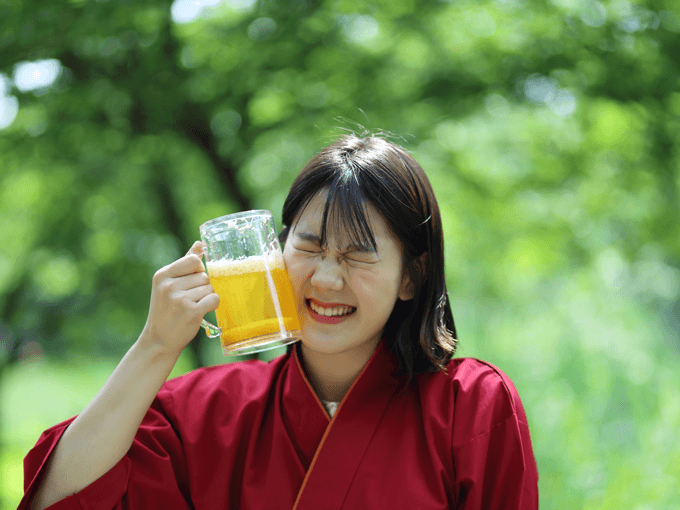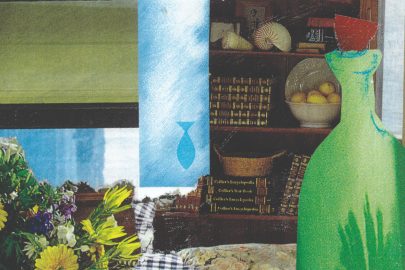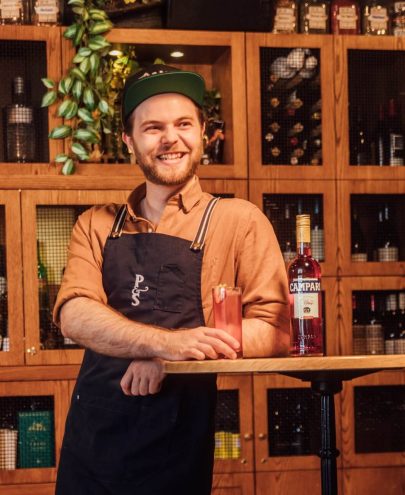Jun 5, 2019 Drinks
Jean Teng can’t really drink – not without feeling really, really sick. So why does she feel so compelled to do it anyway – and what does this say about our obsession with alcohol?
In a country who likes someone who can hold their drink, I am the worst at holding my drink out of everyone I know.
While others bring up casual anecdotes about downing a bottle of wine on a weekday night, or the fun going through a tasting menu’s drink match, one cocktail and two glasses of wine leave me staring pointedly at the back of someone’s head on the bus home, fighting an urge to throw up and cursing my ancestors as I curl my fingernails to dig into the meat of my palm. I once, four drinks into a wine-matched meal, chewed upon a small piece of very good steak and found myself so overcome by queasiness that I stopped mid-chew, left the table, went into the toilet, spat the piece of very good steak out, flushed it down the toilet, put the toilet seat cover down, sat there for a minute taking deep breaths to collect myself – it was a very nice-smelling toilet, don’t worry – went back outside and finished the steak. But I didn’t enjoy it. And I wish I could have.
Why do I do this to myself?
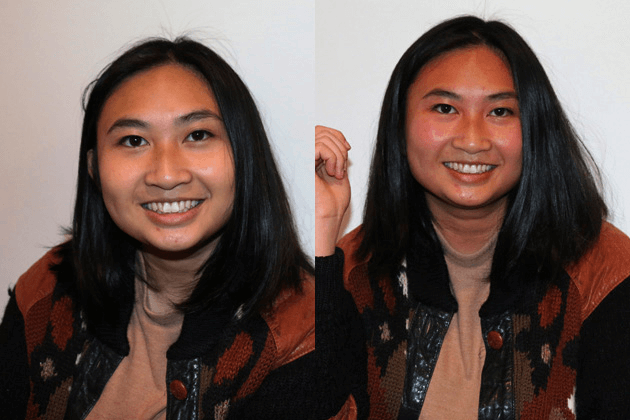
Like about 50 per cent of East Asians, I suffer from Asian glow (Alcohol Flush Reaction to its mother). For anyone who doesn’t know what Asian glow is like, it’s this: first, your face will start to feel flushed. You press the backs of your hands against your cheeks, and ask someone, “Hey, am I red?” They say, “Yeah, but it’s not that bad.” It will be bad. The proof will appear in any photo taken of you that night. Then, your heart starts beating faster than usual in your chest. It’s rapid. You wonder if you’re starring in some 2000s-era television ad warning teens against drinking and whether everyone else can hear it too.
Depending on what you drank, you dumb bitch, you might start to feel a slow ache on the walls of your skull. An overall feeling of nausea will start to creep in. You’re finishing up dessert, and you want to throw up. You go to the bathroom and can’t bear to look at yourself in the mirror. Don’t look at yourself in the mirror! To illustrate how terrible you will feel, consider this: A drug treatment given for treatment of alcoholism, disulfiram, essentially replicates the symptom of Asian glow.
Asian glow basically means your body is firmly and not at all politely rejecting the toxins you’ve decided to put into it on any given ill-fated Friday night. It has something to do with having a less functional acetaldehyde dehydrogenase enzyme, thanks to a pesky gene mutation common in Asian people. The enzyme breaks down and metabolises acetaldehyde, the toxin in alcohol which is responsible for most hangover symptoms. The redness is a direct symptom of accumulated acetaldehyde. Also, as a cheerful aside, if you’re a sufferer of the Asian flush and consume more than five drinks a week, you are apparently 10 times more likely to develop oesophagus cancer, and regular drinkers are also at greater risk for liver diseases.
All pretty bad. But I want to get fucked up with my friends?! The social pressure I feel to drink despite the fact it’s actually quite an unenjoyable experience is very, very real. Anyone living in New Zealand – no, the world – wouldn’t have a convincing case against this.
This isn’t another think piece on the insidious nature of Kiwi drinking culture, we don’t need that when most of us are just straight up living in it. Rather than accept a life without booze, Asian glow sufferers have created enough demand for a thriving market of products to counter this genetic phenomenon. Buzzfeed videos have been made with sufferers trying out things like PEPCID, a Histmaine-2 blocker, and imparting their own advice on drinking through it. You can Google tips on the internet which tell you how to hide a flush – green-tinted make-up, apparently and how to slow down the flush with “flush-free cocktail recipes”. It’s worth noting PEPCID only treats the redness of Asian glow – no other symptoms. We all out here feeling bad and drinking anyway.
Having this physical reaction every time I drink has made it extremely obvious how stupidly commonplace alcohol is, in and out of the workplace. It’s a shortcut to relate and connect to people you just met. “Could really do with a glass of wine, eh?” “God, I need this.” “Free alcohol? I’m there.” Cue laughter. “I got so drunk last night.” Cue laughter. Go to any big event and see the endless trays of free alcohol floating through the room, quickly wedged in between you and a friend as soon as they spy you with an empty hand. I am human, and weak, I will probably take one if everyone else does.
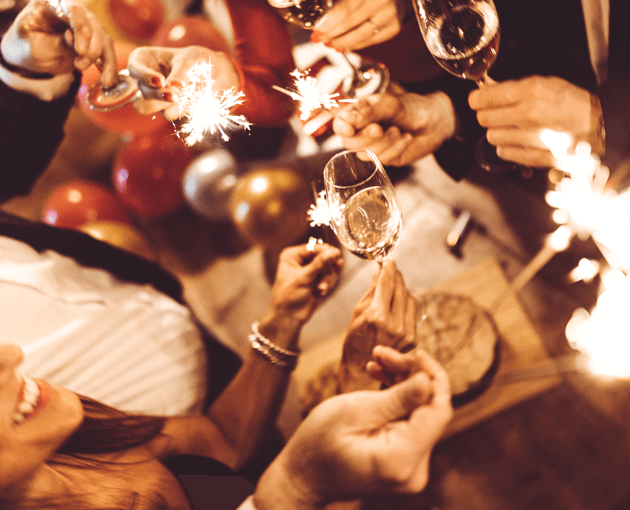
Why are we this way? To me, it feels like the right thing to do. I know it’s right because that’s how it’s always been constructed: in film, in television, in the real life antics of friends and colleagues. That line between drinking and “a good time” is so direct and immovable, it simply is. The presence of alcohol is in so many depictions of adulthood, or a simulation of adulthood (see: every teen movie ever made), it makes me feels less-than to go without. In a situation where you already feel out of place – at a party, after-work drinks at a new workplace, a networking event – anything which allows you to further the perception you’re fitting in becomes absolutely vital.
If I’m honest about why I often find myself with a wine in hand at after-work drinks, or a spritzer when I’m eating a meal with friends, it’s not because I like the taste or that I love my face sending off heat like it’s the seventh circle of hell. It’s because I want to be seen as part of the team. I want the weight of it in my hand, the reassurance that I’m involved in the moment. Refusing a drink can automatically feel like you’re Being Above others who drink. I just don’t have a functioning enzyme! And even if I did, and didn’t feel like a drink, or made the choice not to drink, that’s usually not coming from a position of superiority. This knee-jerk reaction of feeling defensive over others not drinking is down to our own internalised normalisations: we don’t want to be confronted with the fact we’ve all accepted drinking, and drinking a lot, as the norm. We might not want to interrogate it too much when someone chooses to opt out, or their reasons why, so we think, “God, they must think they’re so much better than me.” But teetotallers by and large aren’t coming from a place of superiority. In fact, it’s an uncomfortable feeling, always, to circumvent expectations and not fall into the narrative that the situation has pre-written for you. When a group of friends go out, the building blocks have already been set in place. So you may take your PEPCID and grin and bear it because this is what it means to have fun.
I can still appreciate a good glass of wine, thimble of sake or yuzu cocktail – I may lack a working enzyme, but my taste buds are fully intact – but I can only have, like, two. Any more and I feel like I’m just trying to replicate the fun everyone else has. It’s me striving to understand what in the world is so amazing about putting away that much alcohol, because I’ve never experienced it, and also it’s never really been articulated to me before. It’s a recognised desired state. Yeah, I still get some of alcohol’s perceived benefits: the world goes a bit cloudy, I talk more shit, and I’m more likely to dance badly. But if I move past a very hazy sweet spot which has been deliberately curated, consisting of 1) spacing things out 2) drinking a lot of water 3) not eating too much food 4) not drinking red wine, things can get really dicey, really fast. I will throw up.
The worst thing is it’s sometimes unpredictable: I can have three drinks over two hours and feel a-ok, or I can have one and still feel sick an hour later. The one saving grace of this whole thing is I’ve never once had a hangover the next day, because my hangovers happen while I’m drinking. Real time, baby!
I’m trying to be better, so now everyone who has ever dined with me knows the score, and I’ve made a vow to stop attempting to power through it anymore. But it is, inevitably, a work in progress.

